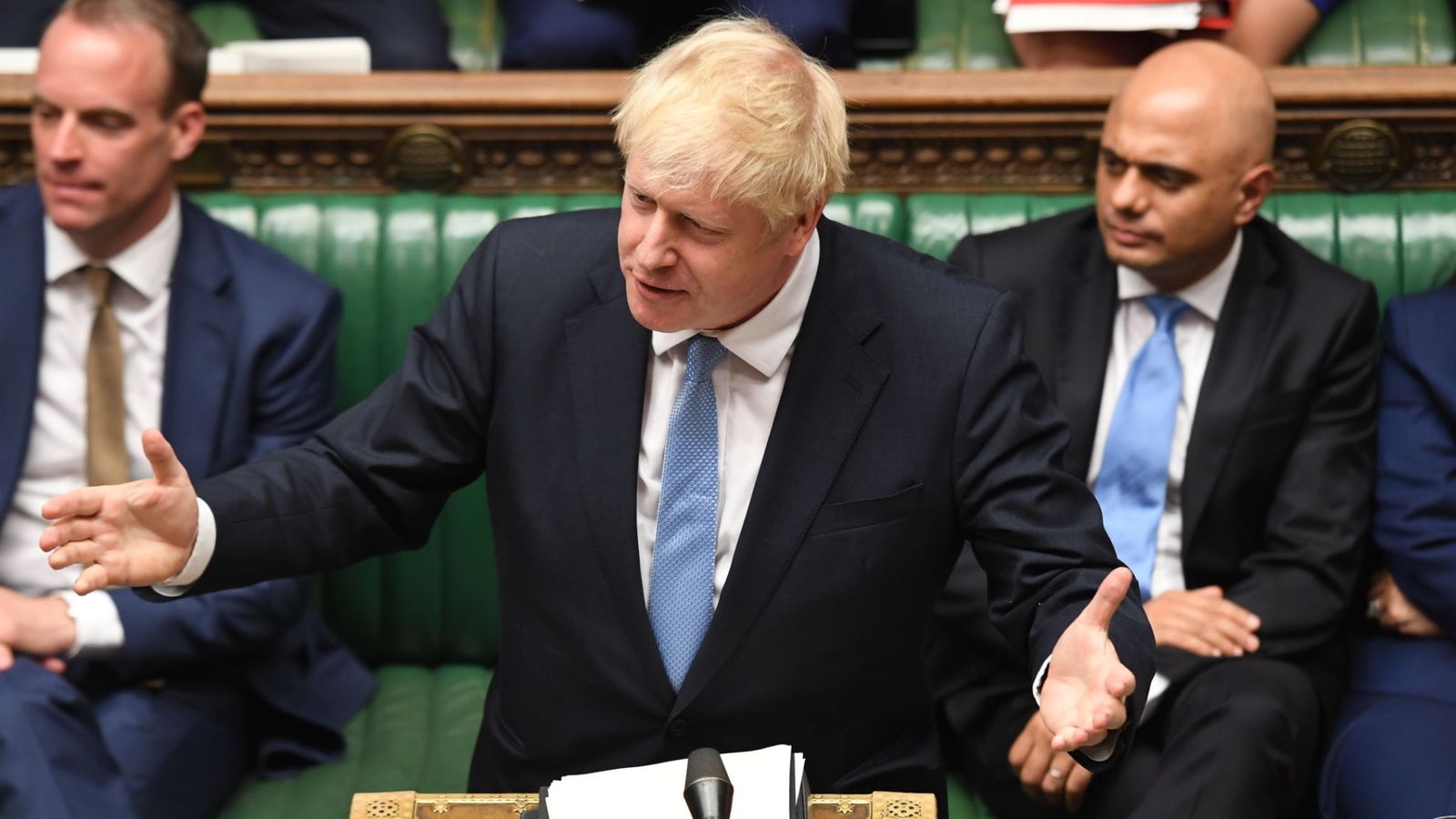
The prorogation crisis is a phoney war — and the only winner is boris | thearticle
- Select a language for the TTS:
- UK English Female
- UK English Male
- US English Female
- US English Male
- Australian Female
- Australian Male
- Language selected: (auto detect) - EN
Play all audios:

The mother of Parliaments has an attack of the vapours. Boris Johnson’s bold bid to outmanoeuvre Opposition parties has predictably provoked sound and fury, signifying nothing. With the
help of the media, they have conjured up a Prorogation Crisis. But the Prime Minister is not breaking any law or convention by using the royal prerogative to prorogue Parliament. If MPs had
wanted to prevent him doing so, they could have changed the law. But the last major piece of parliamentary legislation, the Fixed-term Parliaments Act 2011, states explicitly: “This Act does
not affect Her Majesty’s power to prorogue Parliament.” Last year Parliament took a slightly shorter break for party conferences, but this year’s recess from September 9 to October 14 is
constitutionally justified by the fact that, unlike last year, there will be a Queen’s Speech. The current parliamentary session is unusual only in being the longest since the Long
Parliament, nearly four centuries ago. With Brexit now in sight, it is high time that MPs focused on the myriad other problems that the legislative programme to be unveiled in the Queen’s
Speech will aim to address. Yet the objection of Opposition MPs is not to the Government’s policies but to its politics. Speaker Bercow, who is supposed to be impartial, interrupted his
holiday to denounce the prorogation as “a constitutional outrage”. By throwing convention to the winds, the Speaker has behaved pretty outrageously himself, but he was merely following the
crowd. Thanks to the BBC and the rest of the media adopting the Remainer narrative, a large section of the public has been persuaded that giving MPs an extra week away from Westminster (they
have just taken six) is tantamount to staging a coup d’état. The Shadow Home Secretary, Diane Abbott, stood outside the Palace of Westminster to proclaim: “If this was a Latin American
country it would be called a coup.” Normally Ms Abbott is rather in favour of coups by the likes of Chavez and Castro, but only the fascist cap fits Boris. All that is missing are the
epaulettes and dark glasses. Once all the expostulating has died down, the Opposition parties will be left with the same limited range of options as before, only with less time to mount a
coup of their own. Earlier this week, that champion of parliamentary democracy Jeremy Corbyn had backed away from a vote of confidence, presumably because the Labour whips had calculated
that he would lose it. Now that threat is back on the agenda, but only “at some point”. In the unlikely event of such a vote succeeding, Boris Johnson has indicated that he would call an
election, timed to take place after October 31, and remain in Downing Street. This leaves other forms of legislation to prevent a no-deal Brexit. There is nothing to stop MPs from rushing
through a Bill to revoke Article 50, for example. The House of Lords would doubtless wave it through. But it is doubtful that they have the numbers in the Commons. A motion to force the
Government to request another extension from the EU could be ignored, according to legal advice. In any case, public opinion is against it. The country is eager to move on from Brexit, is
nervous of no-deal, but supports Boris’s attempt to squeeze concessions from Brussels. MPs won’t want to be held responsible for sabotaging Britain’s last chance to avoid making Brexit more
painful than necessary. A “people versus Parliament” election would be risky, but if it comes to that, Boris won’t flinch. The Prorogation Crisis is a phoney war — and the only winner is
Boris. It is a huge diversion from the real conflict over Brexit. If the Opposition devotes time to passing motions of protest at this “outrage”, there will be quiet satisfaction in Downing
Street. A series of policy announcements, beginning with next week’s autumn statement by the Chancellor, and culminating in selective leaks from the forthcoming Queen’s Speech, will further
divert attention from the impending deadline. Meanwhile, the clock will be ticking. Across the Channel, it is dawning on EU leaders that Britain now has a Prime Minister who will do whatever
it takes to complete Brexit. They may or may not close a last-minute deal. But they now know that the British Parliament is unlikely to do the dirty work for them.
